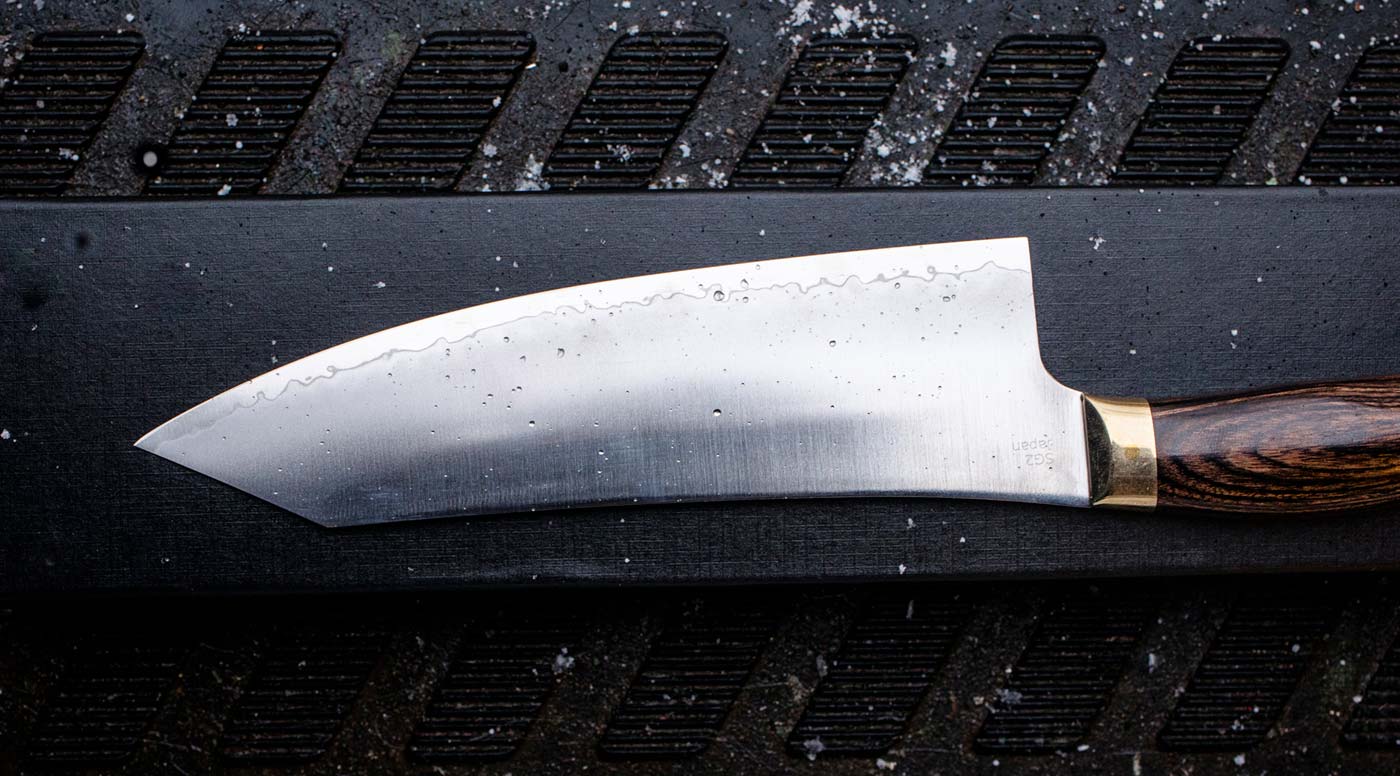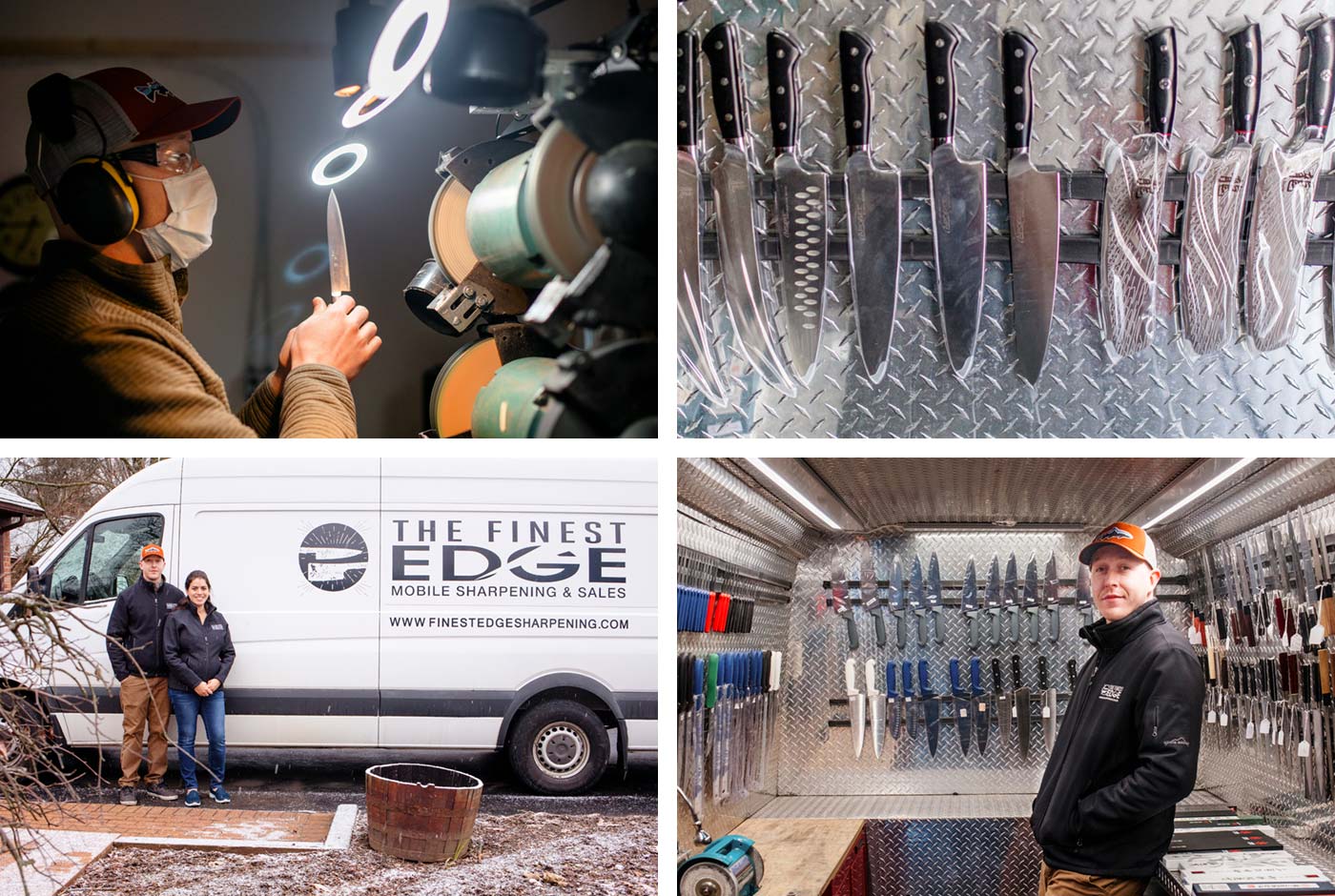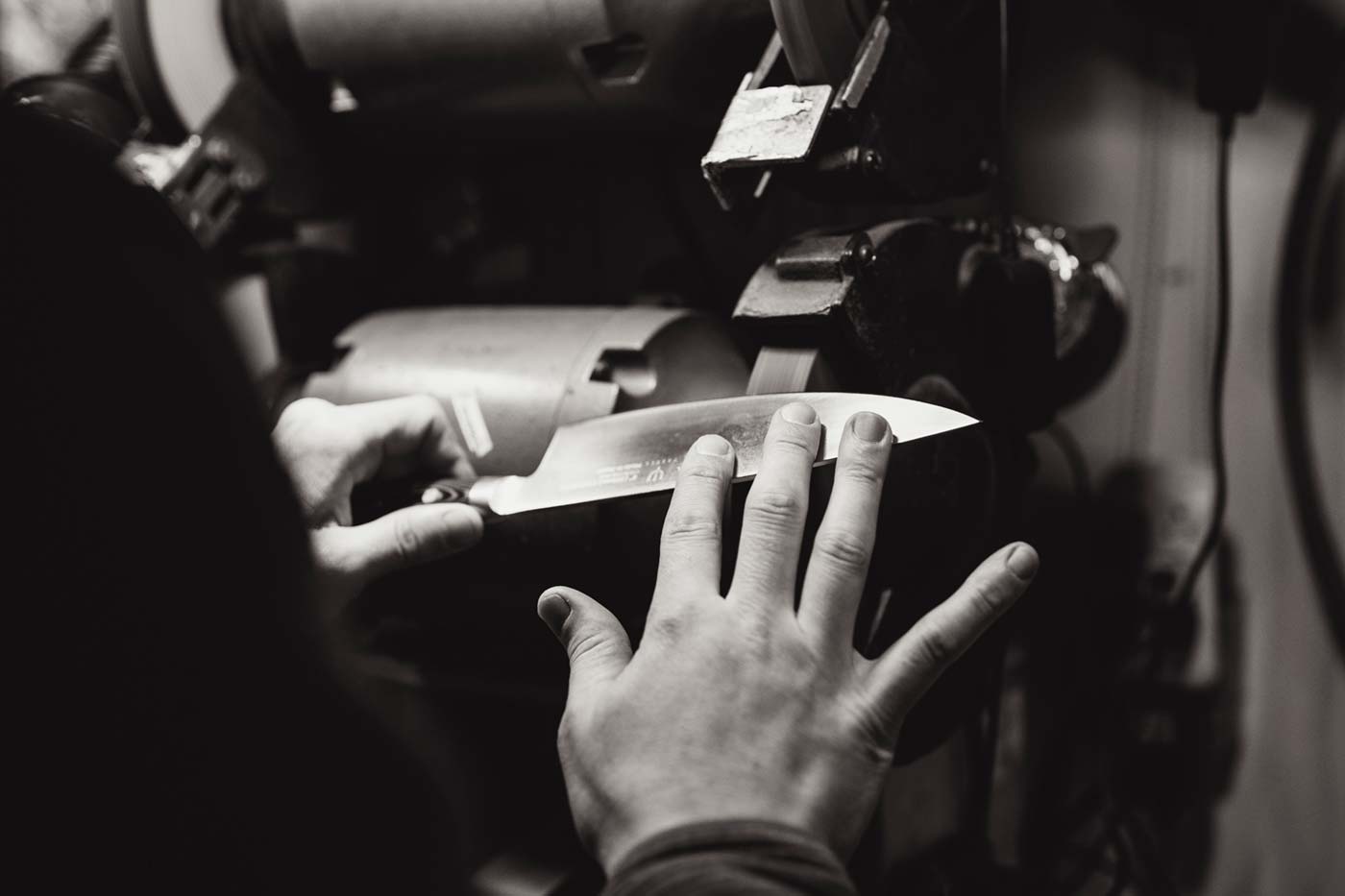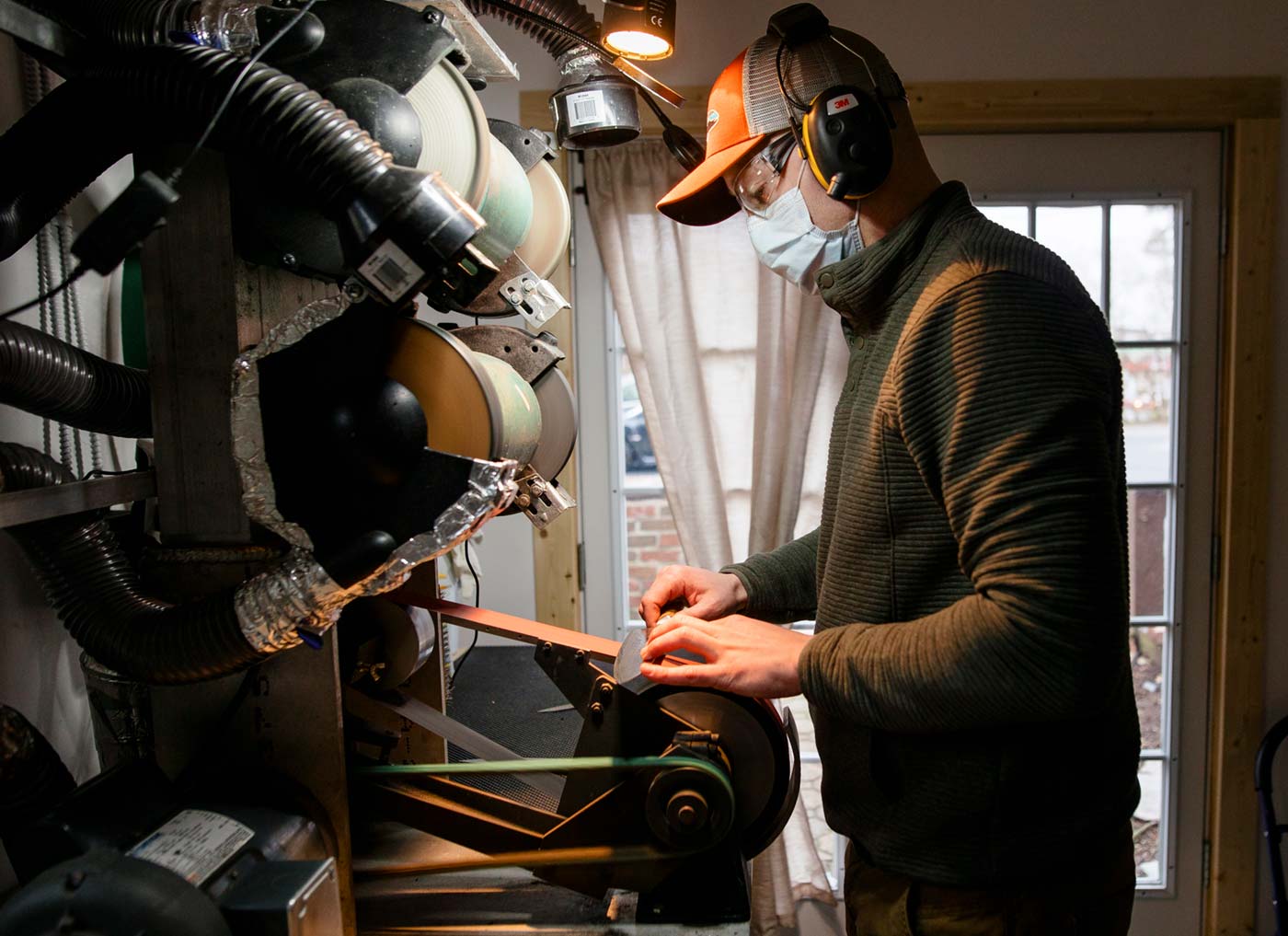Sharp Relief
If it slices, Lou Boyle can sharpen it. The Columbus-based master sharpener has restored everything from antique fabric scissors to bayonets and katana swords back to their original splendor. While these are some of his more memorable projects, it’s regular kitchen knives that drive the mobile sharpening business he’s built with his wife, Melanie. Today, the Boyles are finding innovative ways to keep Columbus sharp.
The Boyles started The Finest Edge in 2016 while living in the Shenandoah Valley of Virginia. Although the business was new, Lou was no stranger to the industry: His father, Bruce Boyle, was also a master sharpener. Apprenticing under Bruce, Lou learned both the craft of sharpening and the ins and outs of running a business. It was under his father’s tutelage that Lou began cultivating clients in the local restaurant industry.
“We ended up getting drawn into the four-star [restaurant and] Michelin crowd all the way out through the [Interstate] 66 and 81 corridor,” Lou said. His dad had stressed the importance of building relationships with restaurants, and through word of mouth, The Finest Edge took off. Lou differentiated himself from other sharpeners by setting up his station inside a van and going directly to restaurants.

The convenience of on-site sharpening, coupled with Lou’s meticulous work, earned him a loyal following among chefs in Virginia. Then, Melanie got a job opportunity in Columbus. The couple had to decide whether they were ready to build up a client base in a new city. Columbus’ booming food scene helped them make their choice.
“We decided to move here to Columbus because it’s such a growing culinary capital,” Melanie explained. “It’s kind of the crossroads between [the] East and West parts of the country for food innovation.” As he had in Virginia, Lou started by working with restaurants and commercial customers (he’ll sharpen anything from stylist scissors to farm tools). Soon, The Finest Edge truck started visiting farmers markets and other locations with heavy foot-traffic. Melanie said their eye-catching van helped bring new business as well. “We would get random phone calls like, ‘Hey, we just saw this truck—uh, what do you guys do?’”
The answer to that question sometimes takes explaining; the Boyles said that the idea of mobile sharpening is still “abstract” to many people. Yet Melanie emphasized that knife sharpening is a professional service necessary to maintain the life of an essential kitchen tool.
“For most home chefs who cook at least two meals a day from scratch using their knives, we recommend having the knives professionally sharpened every six months.”
To make routine sharpening easier, The Finest Edge offers several unique packages. “Sharpening parties” are becoming popular, during which friends and family bring items in need of sharpening to a single location. Lou will drive to them and take care of everything on the spot. (The host receives a 20% discount on their own items, and a minimum of 10 items are required). To meet demand during COVID-19, Lou developed a system for contact-free sharpening, where items can be left in a secure location and paid for remotely. Once Lou collects the items, he uses his five-station sharpening tower to restore everything to its original state.
Critiques by experts as part of his training prepared Lou to sharpen everything from regular kitchen knives to rare antiques. On the road to becoming a master sharpener, Lou received items in need of repair and was required to return them to their original condition in a certain timeframe. Then, experts would evaluate his work. They were interested in more than just whether the blade could cut; their feedback also considered the balance and overall geometry. “It becomes a very technical skill, one that requires hundreds and hundreds of hours of practice,” Melanie said. Lou added that he went through “about a thousand practice knives” during his training.

Top Left: Boyle is a second-generation master sharpener. Top Right: It’s important to choose the right knife and give it proper care. Bottom Left: Lou and Melanie Boyle. Bottom Right: The mobile sharpening operation visits restaurants, stores and farmers markets.
Advice for home cooks
While regular sharpening should be part of the routine for home cooks, Lou said that starting with the right knife is just as important. “I would not recommend buying a knife online ... you really need to have it fitted to your hand first.”
Once you’ve made the investment, proper care at home will extend the life of your knife. Handwashing is crucial, as detergent is corrosive and spending too much time in water may erode the blade. Using a ceramic honing rod between professional sharpenings can help maintain the knife’s performance, but Lou cautioned against pull-through sharpeners, which can warp the metal.
Finally, and perhaps most importantly, the Boyles said that you should love the knife you’re working with. “It’s worth the investment in a tool that could literally last for the rest of your life, and possibly your children’s lives, if you take care of it,” Melanie said. “There is so much more joy to be had in cooking in your home if you like the tools that you’re using.”
Sharpening rates at The Finest Edge start at $1 per blade inch for standard knives. Visit finestedgesharpening.com to learn more.

Sharpening knives for kitchen is the core of the business.





